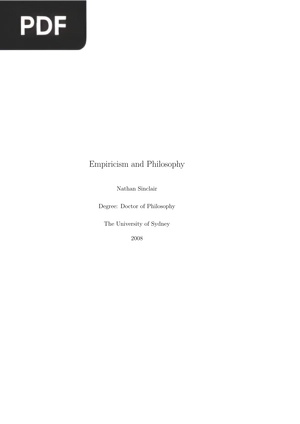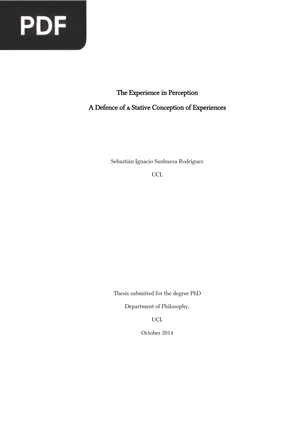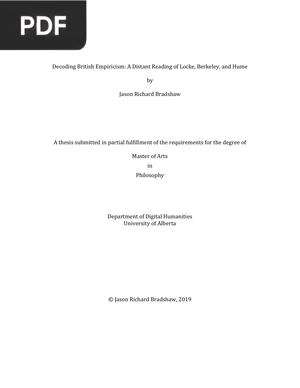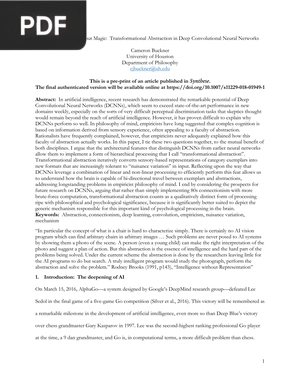Empiricism in the Philosophy of Science
Author: David James Cobb
*Wait a few seconds for the document to load, the time may vary depending on your internet connection. If you prefer, you can download the file by clicking on the link below.
Information
Description: Empiricism in the Philosophy of Science by David James Cobb presents a thorough exploration of empiricism, highlighting "methodological empiricism" and its relevance. It offers a valuable historical and contemporary analysis, inviting readers to reconsider traditional views.
Pages: 241
Megabytes: 0.7 MB
This may interest you
Empiricism and Philosophy
Extension: PDF | 258 pages
Empiricism and Philosophy by Nathan Sinclair explores empiricism through the lens of philosophical arguments and historical context. It delves into the challenges of defining and justifying knowledge acquisition, making it essential reading for understanding the foundations of empiricism.
The Experience in Perception – A Defence of a Stative Conception of Experiences
Extension: PDF | 198 pages
The Experience in Perception - A Defence of a Stative Conception of Experiences by Sebastián Ignacio Sanhueza Rodríguez defends a stative view of perceptual experiences, arguing they are mental states. This thesis challenges processive views, offering valuable insights for understanding perception.
Decoding British Empiricism – A Distant Reading of Locke, Berkeley, and Hume
Extension: PDF | 120 pages
Decoding British Empiricism - A Distant Reading of Locke, Berkeley, and Hume by Jason Richard Bradshaw employs textual analysis to re-examine key philosophical texts. Discover new perspectives on empiricism and its nuances through computational methods.
The British Empiricism – Locke, Berkeley and Hume (Presentation)
Extension: PDF | 40 pages
The British Empiricism - Locke, Berkeley and Hume (Presentation) por Nowxhere. This PDF offers a concise overview of the core tenets of British Empiricism. Explore the foundational ideas of Locke, Berkeley, and Hume, and understand their enduring impact.
Empiricism without Magic – Transformational Abstraction in Deep Convolutional Neural Networks
Extension: PDF | 40 pages
Empiricism without Magic - Transformational Abstraction in Deep Convolutional Neural Networks by Cameron Buckner presents a compelling argument for how DCNNs achieve abstraction, bridging AI engineering with philosophical empiricism. It's a valuable read for understanding how neural networks model cognitive processes.











































